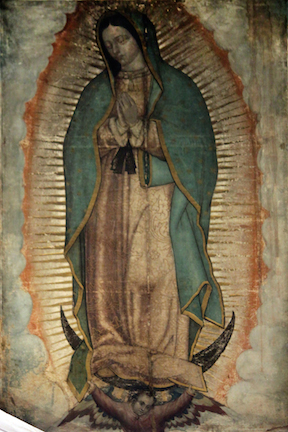Go and Do Likewise
But because he wished to justify himself, he said to Jesus, “And who is my neighbor?” Jesus replied, “A man fell victim to robbers as he went down from Jerusalem to Jericho. They stripped and beat him and went off leaving him half-dead. A priest happened to be going down that road, but when he saw him, he passed by on the opposite side. Likewise a Levite came to the place, and when he saw him, he passed by on the opposite side. But a Samaritan traveler who came upon him was moved with compassion at the sight. He approached the victim, poured oil and wine over his wounds and bandaged them. Then he lifted him up on his own animal, took him to an inn and cared for him. The next day he took out two silver coins and gave them to the innkeeper with the instruction, ‘Take care of him. If you spend more than what I have given you, I shall repay you on my way back.’ Which of these three, in your opinion, was neighbor to the robbers’ victim?” He answered, “The one who treated him with mercy.” Jesus said to him, “Go and do likewise.” Luke 10:29-37
Sometimes charity requires that we get our hands dirty. In the parable of the Good Samaritan, the priest and the Levite had good reason to pass the Jewish robbery-victim on the road. They had things to do, rituals to attend, families to take care of, reputations to guard. The robbery victim was either dead or almost dead, anyway. They probably thought they could do nothing to help him. There were dozens of excuses for not helping the Jewish man, and all of them were culturally relevant and valid.
"True charity requires courage: let us overcome the fear of getting our hands dirty so as to help those in need." - Pope Francis
The sacrifice of the Good Samaritan took courage. In those days, touching a foreigner, and a bloody foreigner at that, would make one ritually unclean. By helping the Jewish man, the Samaritan not only set aside his personal plans, but also his reputation. The Jew was left for dead - he was beaten, ugly, naked, foul-smelling, abandoned, and likely couldn’t speak. The Samaritan’s actions took sacrifice and self-denial. He saw the humanity in the face of the disfigured Jew and did everything he could to help him.
The parable says that the Samaritan cleaned and bandaged the Jewish man’s wounds himself. He did not wait for someone else to do it, or to tell him to do it, nor did he pass the Samaritan off to someone else; he took matters into his own hands. Then he instructed the innkeeper to take care of the Jewish man until he came back. The Samaritan was under no obligation to return. However, he made sure that the Jewish man was completely taken care of, that his needs were met, and that the job was finished. How often do we do only the least amount of work to appease our sense of duty to our neighbor? Or are we compelled by something more, like the Good Samaritan? Does compassion drive us to aid those who are vulnerable?
Christ our Lord, the Paschal Victim, was also beaten, bloody, sweaty, naked, and abandoned. He allowed Himself to become weak, vulnerable, and silenced. Today, like our Lord, the unborn victim is broken, bloody, naked, and abandoned. The unborn are utterly vulnerable. They have no voice of their own. They have no voice but ours.
Each one of us has been chosen to speak for our Lord in the womb. When Our Lady of Guadalupe, Patroness of the Unborn, appeared to St. Juan Diego and told him to approach his bishop to ask for a chapel, she told him, "My little son, there are many I could send. But you are the one I have chosen. (1)" St. Juan Diego was criticized for being simple, naive, and crazy, but his humble and courageous “Yes” to our Lord, present in the womb of Our Lady of Guadalupe, brought forth new life for his people, who were killing their children through ritual human sacrifice. (2)
Let us ask Our Lady of Guadalupe to embolden us to serve Our Lord, vulnerable and voiceless in the womb, and like the Good Samaritan, have no fear for our reputations or of getting our hands dirty.
- http://www.catholic.org/about/guadalupe.php
- Burke, Archbishop (now Cardinal) Raymond. “Mary as our model in fostering the new springtime of faith.” http://www.ewtn.com/library/MARY/burkeolguad.HTM
How is God speaking to you in this post or today's reading? Enter a comment below or click HERE if you are reading from your phone. (Commenting is optional, but always grace-filled.) Thank you for letting us into your life and for being a part of ours!
Kristina Garza is the Director of Campus Outreach for Survivors of the Abortion Holocaust. She grew up in Rancho Cucamonga, California and graduated from the University of California Riverside. She has been involved in the pro-life movement since 2008, when a member of the Survivors missionary team convinced her to take a pro-life pamphlet on her way to a university class. She has led hundreds of pro-life outreaches and numerous training events for youth and young adults throughout the nation, including multiple Survivors ProLife Training Camps and the International ProLife Youth Conference, and has spoken at national pro-life events like the March for Life Youth Rally. She enjoys opportunities to speak, present, and inspire at high school assemblies, Confirmation classes, youth and young adult groups, pro-life events, and rallies throughout the nation.
You can contact Kristina at:
Facebook // Instagram // Twitter // Blog
Email: kristina@survivors.la



